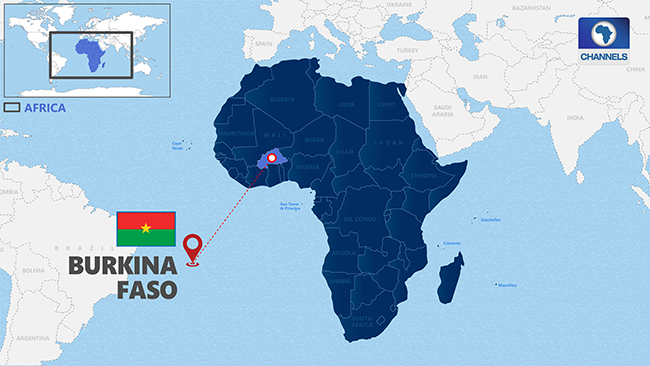Amid the worsening naira crisis, the total amount of currency-in-circulation in the Nigerian economy has tumbled from N3.3tn to N1.54tn, a Central Bank of Nigeria document obtained by The PUNCH has revealed. This came as a biting shortage of new naira notes amid an acute scarcity of old currency has inflicted untold hardship and pain on millions of Nigerians, leaving several people stranded. The latest central bank document, obtained by one of our correspondents, showed that the total amount of currency-in-circulation fell by 53.33 per cent within three months. Specifically, the currency-in-circulation fell from N3.3tn recorded on October 31, 2022 (a few weeks before the CBN began the implementation of the naira redesign policy) to N1.54tn on January 31, 2023. The 53.33 decrease in C-in-C followed bank customers’ huge deposits of old N1000, N500 and N200 notes ahead of the CBN’s February 10, 2023 controversial deadline. Among other things, the CBN Governor, Godwin Emefiele, had said one of the objectives of the naira design policy was to mop up currency outside the bank vaults which he put at N2.7tn. He said with such a huge amount outside the banking system, it would be difficult for monetary policy initiatives to impact the economy. The PUNCH obtained the latest data from a report presented by the CBN Deputy Governor, Folashodun Shonubi, at a forum in Abuja last week. He noted that since 2018, the currency-in-circulation had been increasing at an average annualised rate of 18 per cent before the CBN’s redesign policy. Meanwhile, Emefiele had announced in October last year that the bank would release re-designed naira notes by December 15, 2022. According to the CBN governor, this was targeted at controlling currency in circulation, curbing counterfeit currency and ransom payments to kidnappers and terrorists. He noted, “Indeed, the integrity of a local legal tender, the efficiency of its supply and its efficacy in the conduct of monetary policy are some of the hallmarks of a great central bank. “In recent times, however, currency management has faced several daunting challenges that have continued to grow in scale and sophistication with attendant and unintended consequences for the integrity of both the CBN and the country. The CBN had earlier said the old notes would cease to be regarded as legal tenders by January 31, 2023. However, the deadline was extended to February 10 with a grace period of seven days for old notes to be deposited in banks. The Supreme Court sitting in Abuja on Wednesday adjourned a hearing in the suit seeking the suspension of the naira redesign policy to February 22, 2023. Some state governments have filed a suit against the Federal Government seeking a restraining order to stop the full implementation of the naira redesign policy of the CBN. In a new development, nine states have filed to join the suit initially filed by Kogi, Kaduna and Zamfara states. The states are Katsina, Lagos, Cross River, Ogun, Ekiti, Ondo and Sokoto states bringing the new total of plaintiffs to ten. On the other hand, Edo and Bayelsa have filed to be joined as respondents. The seven-man panel led by Justice John Okoro ordered them to amend their processes to be heard as one. Meanwhile, pending the hearing of the suit at the Supreme Court on Wednesday, the order suspending the February 10 deadline for the phasing out of old notes subsists amid a conflicting CBN directive to banks and the public. Meanwhile, the President, Major General Muhammadu Buhari (retd.), had said the old N500 and N1,000 banknotes were no longer legal tender in the country. He, however, directed that the old N200 note should be re-circulated, adding that it would remain legal tender until April 10, 2023. Buhari appealed to Nigerians to deposit their old N500 and 1000 notes with the CBN. Residents defy governors Meanwhile, traders and transporters in several states across the country have stated insisting on collecting only new naira notes and old N200 note in line with the directive of the President, Major General Muhammadu Buhari (retd.) This is contrary to the directives by some state governors asking their residents to continue spending the old notes in line with an order of the Supreme Court. Already, many states including Lagos, Ogun and Kaduna have declared the old N1,000, N500 and N200 notes will remain legal tender in their jurisdictions, citing the Supreme Court judgment on the matter as their reasons. As a result, the state governments directed their residents to spend old notes, vowing to prosecute any business or individual that rejects the old notes. However, across many states over the weekend and on Sunday, traders and transporters defied the governors’ directives and rejected the old N500 and N1000 notes for transactions. Our correspondents report that many residents in several states could not carry out transactions with old N500 and N1000 notes. Also, motorists in some parts of Lagos refused to collect old N500 and N1000 notes. Our correspondent observed that the new song on the lips of commercial bus drivers and conductors was, “I’m not collecting old N500 and N1000 notes.” This trend was observed at Mile 2, Orile, Berger, Ojodu, and Lagos Island areas of Lagos on Saturday and Sunday. At Mile 2 on Sunday, bus conductors told passengers they would not accept old notes. Asked if members of the Lagos State parks and garages management committee popularly called ‘agbero’ were not collecting the old notes, some bus conductors plying the Oshodi-Berger route said the agberos were rejecting the old notes. A driver, who did not want his name in print, said, “Agberos were the first set of people to reject the old notes, then the filling stations.” The PUNCH observed that several passengers had only new notes or old N200 notes on them, complying with a new directive from the president. In many parts of Ogun State, traders and commercial transport operators bluntly refused to collect old notes from commuters, most of whom were confused about the validity of the notes














